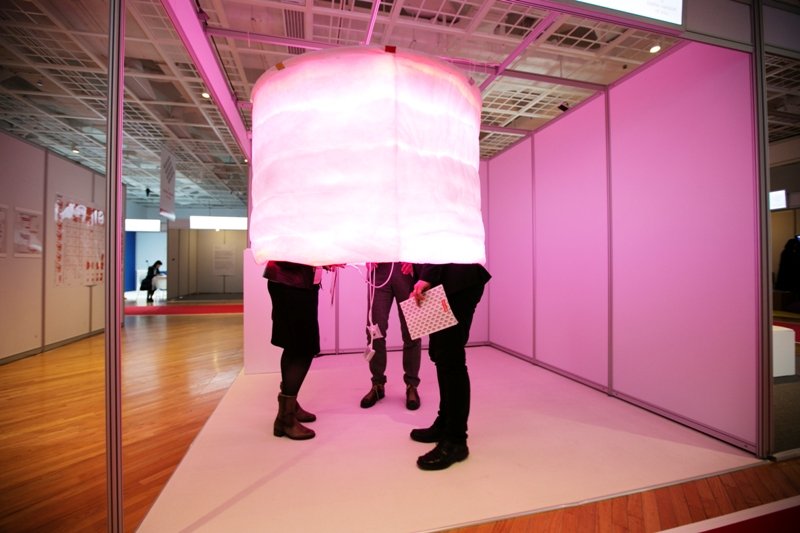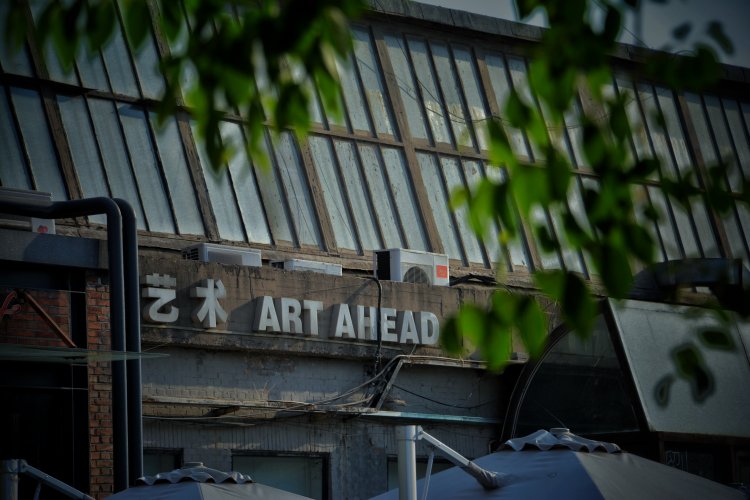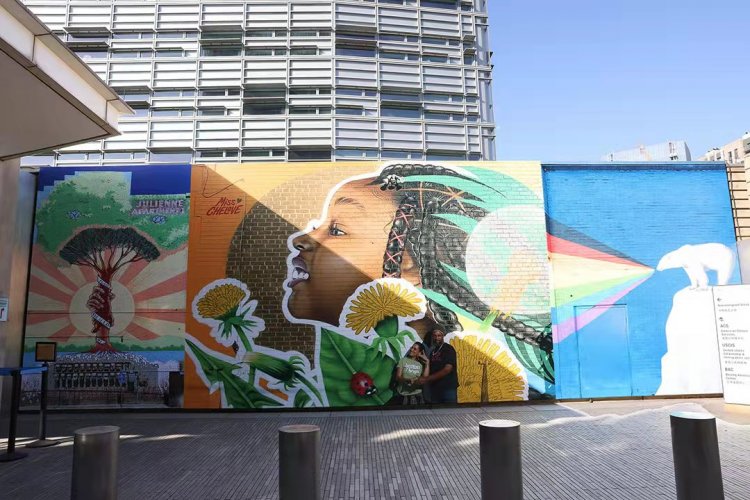State of the Arts: Find a Better Version of You at Goethe-Institut
“Everywhere we remain unfree and chained to technology, whether we passionately affirm it or deny it. But we are delivered over to it in the worst possible way when we regard it as something neutral; for this conception of it, to which today we like to do homage, makes us utterly blind to the essence of technology."
– Martin Heidegger, The Question Concerning Technology
Heidegger's forward-thinking writing seems all the more poignant today, as Beijing's art scene welcomes the exciting new A Better Version of You exhibit. Following a previous edition in Seoul, the exhibition, with its conspicuous attributes of a technology fair, now takes over the Goethe-Institut's 798 premises starting Mar 24.

Gathering an array of global perspectives, A Better Version of You features a series of innovative applications, products, and prototypes that not only reveal the concerns and problems with advancing technology but also intertwines artistic visions from artists, creators, and inventors as a means to dissect the changes. These varying stances help raise important questions about the legitimacy, ethics, and the essence of developing technologies and their impact on us, their users. The exhibition works as a double-fold project that blurs the line between a tech fair and an exhibition of works by artists who have made technological progress the main focus or their chosen medium.

Some of the more notable projects on display include Kang Jungsuck’s Game I: Future is Fate, a prototype of an AI-generated game which allows users to explore their own identity via an avatar built using all of the metadata that has been gathered through your entire life. Metasitu’s Swarm, on the other hand, is “A social software that visualizes the collective consciousness by recording the evolution of opinions on a given topic between different actors”; whereas Du Yuqing’s BIV IC Group details the proposed plans an international corporation whose goal it is to create an ultra-high bandwidth brain-machine interface that connects us parishioners to computers – "Free chip implantations are promised! Be ready to embrace the future to its fullest."

The fair is complemented by a series of talks (in English and Chinese) that go into greater detail about the different works and projects exhibited, adding analysis from experts in the field. The series kicks off with the discussion "The question concerning technology in China" by Yuk Hui ( Sunday, Mar 25, 5pm at UCCA). Yuk Hui's research is specifically a response to Heidegger’s critique of modern technology, and asks the question: "How applicable are the conclusions of the celebrated philosopher on the subject to Chinese modern thought?" As an investigation into the historical-metaphysical conundrums surrounding technology's evolving uses within Chinese society, this raises other queries such as: "Why were technics never thematized in Chinese thought?" and "Why has time never been a real question for Chinese philosophy?" The keynote will be followed by a discussion with Carl Mitcham, a philosopher of technology.

Another noteworthy dissection of modern technological trends will be the panel discussion "What drives people to invest in tech utopia?" (Saturday, Mar 31, 3pm at Goethe-Institut), headed by journalist Nina Scholz. The talk will track the history of many of Silicon Valley’s earliest projects and look out how a similar ideology resonates within China’s current approach to technology development.

With the rise of China as a trendsetter with regards to technological expansion, it seems pertinent to raise questions about the actors involved in the creation and production of such technology and the ethics that should govern their impact on its consumers. A Better Version of You, benefiting from input from local and regional voices, responds tthe necessary dialogue around the framing and shaping of China's regulations regarding big data, privacy, AI, and other current technology-related concerns.
For more information about the program, make sure to follow Goethe-Institute official WeChat account (goethe_institut) where they'll post updates and schedules for upcoming events.
Photos courtesy of Yunsik Lim/Goethe Institut







